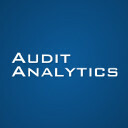Maximizing Efficiency and Profits with the Best Analytics Tools for Real Estate Industry
They trust us:





Best Analytics Tools For the Real Estate Industry

(source:https://images.app.goo.gl/mBuESutZSrTcTVNA6)
In the real estate industry, analytics tools are crucial for understanding market trends, tracking performance, and making informed business decisions. One of the best analytics tools for the industry is Tableau. This software offers a range of solutions, including data visualization, analytics, and reporting.
With its powerful tools and user-friendly interface, Tableau is an excellent choice for businesses looking to gain deeper insights into their data. Another popular analytics tool is Google Analytics, which offers a range of features, including website traffic analysis, conversion tracking, and audience segmentation.
With its easy integration with other Google products and its robust reporting, Google Analytics is a great choice for businesses of all sizes. Finally, Looker is a comprehensive analytics tool that offers a range of solutions, including data exploration, reporting, and visualization.
Its powerful tools make it an ideal choice for larger businesses with complex data needs. Overall, these analytics tools are essential for understanding market trends and tracking performance, making them a must-have for real estate professionals looking to make informed business decisions.
What is MicroStrategy Analytics?
MicroStrategy Analytics is a business intelligence (BI) platform designed for enterprise-level data analysis and reporting. It provides a range of features to help organizations make data-driven decisions and optimize business processes.
With MicroStrategy Analytics, businesses can analyze, visualize, and distribute data in a variety of ways, including interactive dashboards, highly formatted reports, scorecards, and ad hoc queries. The platform also supports automated report distribution, thresholds, and alerts.
Additionally, MicroStrategy Analytics offers Advanced Analytics, Data Discovery, Data Visualization, Embedded BI, and other features to enable users to gain deep insights into data trends. The MicroStrategy Education program offers rigorous, relevant, hands-on training via instructor-led and on-demand courses that result in professional certifications for analysts, architects, and administrators.
The platform’s newest feature, MicroStrategy HyperIntelligence, injects Zero-Click Intelligence about customers, products, people, and more directly into websites or web applications. Platform Analytics is MicroStrategy’s next-generation monitoring tool that captures data in real-time across the platform.
What are the features of MicroStrategy Analytics?
MicroStrategy Analytics is a business intelligence platform that allows organizations to build and deploy interactive dashboards, reports, and analytics applications. It enables businesses to easily access and analyze large amounts of data from multiple sources, providing insights into key performance indicators, trends, and patterns.
With its user-friendly interface, users can quickly create and customize visualizations and reports without the need for coding. The platform also features advanced analytics capabilities, such as data mining and predictive modeling, that enable businesses to gain deeper insights into their data.
Additionally, MicroStrategy Analytics provides a range of security and governance features, ensuring data integrity and compliance with industry standards. The platform is designed to be scalable and flexible, enabling businesses of all sizes and industries to leverage the power of data analytics to make informed decisions.
What is the pricing of MicroStrategy Analytics?
MicroStrategy Analytics is a business intelligence and analytics software platform that transforms data into actionable insights. The pricing for MicroStrategy Analytics is based on the number of CPU cores or named users, and it starts at $600 for a one-time payment.
However, the final cost negotiations for purchasing MicroStrategy Analytics must be conducted with the vendor. A free trial is available, and users can chat with MicroStrategy Analytics’ customer support team or call them to learn more about their pricing plans.
Additionally, there are independent market analysts and customers who have rated MicroStrategy Analytics as the best in analytics due to its user-friendly, secure, and scalable platform, and its low total cost of ownership with predictable costs.
What is Via Analytics?
Via Analytics is a data analytics platform that is focused on providing waste management solutions. Their aim is to help companies unlock their waste data in order to improve their waste management processes and advance zero-waste programs.
Via Analytics’ waste performance dashboard is available 24/7 and offers intuitive, transaction-based metrics that make it easy for companies to measure their progress towards achieving zero-waste goals. The platform is also designed to provide actionable insights that enable companies to make informed decisions about their waste management processes.
Via Analytics is a reliable and fast software platform that processes thousands of transactions with speed under DB integrated cache. The platform is secure by design, built to be a best-in-class solution that provides limitless scale. Via Analytics’ development platform uses Microsoft Azure data and AI for an intelligent, native-cloud app.
What are the features of Via Analytics?
Via Analytics is a powerful data analytics and visualization platform that enables businesses to extract meaningful insights from their data. Some of its key features include advanced analytics, data visualization, and data management capabilities.
The platform allows users to connect to a wide range of data sources, including cloud-based services, databases, and more. Once the data is imported, users can leverage Via Analytics’ advanced analytics tools to conduct powerful statistical analysis, predictive modeling, and machine learning.
The platform also includes a robust set of data visualization tools that enable users to create interactive dashboards, charts, and graphs to communicate insights effectively. Additionally, Via Analytics includes robust data management capabilities, including data quality management, data profiling, and metadata management, allowing users to ensure data accuracy, consistency, and compliance.
What is the pricing of Via Analytics?
Via Analytics is a cloud-based data management platform that offers waste management solutions. They provide pricing analytics for each waste vendor, materials, and facilities to reduce costs. The platform delivers an intelligent, native-cloud app with Microsoft Azure data and AI with limitless scale.
Via Analytics professional services include waste data quality assurance, equipment and schedule right-sizing, cost analysis, RFP preparation, and more. Pricing information for Via Analytics is not readily available on their website. However, interested clients can contact them directly to request a quote or learn more about their pricing plans. Via Analytics also offers a 14-day free trial for their services.
What is Ruler Analytics?
Ruler Analytics is a marketing attribution software that allows businesses to track customer journeys and revenue generated from their marketing campaigns. By integrating their website, CRM, and marketing apps, users can view the data they need to make data-driven decisions.
With Ruler Analytics, businesses can track calls, forms, live chat, and touchpoints to understand how their marketing efforts are contributing to sales and revenue growth. The software enables users to scrape revenue data from their CRM and attribute it to the marketing channels and campaigns that influenced the sale.
Ruler Analytics provides key reports, lead conversion data, and attribution models that allow businesses to evaluate the effectiveness of their marketing campaigns. The platform also offers implementation guides, a dashboard for tracking, and customer support to ensure that users can effectively use all the features available.
The software is widely used by businesses looking to better understand how their marketing is supporting sales and revenue growth.
What are the features of Ruler Analytics?
Ruler Analytics is a marketing attribution software that helps businesses track and measure the effectiveness of their marketing campaigns. The key features of Ruler Analytics include:
Multi-Touch Attribution: Ruler Analytics allows businesses to track the customer journey from initial touchpoints to final conversion across multiple channels and devices, providing a more comprehensive view of marketing effectiveness.
Lead Attribution: Ruler Analytics can track leads generated from phone calls, web forms, and chatbots, and attribute them to specific marketing campaigns or channels.
Closed-Loop Reporting: Ruler Analytics integrates with popular marketing and sales platforms, such as Google Analytics, AdWords, and Salesforce, to provide closed-loop reporting that connects marketing efforts to revenue.
Customizable Dashboards: Ruler Analytics provides customizable dashboards that allow users to view key metrics and reports relevant to their business and marketing goals.
Visitor-Level Tracking: Ruler Analytics tracks individual website visitors and their interactions with your site, allowing you to see the specific pages and content that led to conversions.
Conversion Path Analysis: Ruler Analytics allows users to view the full path a customer took to convert, providing insights into the effectiveness of specific marketing touchpoints.
Automated Lead Scoring: Ruler Analytics can automatically score leads based on their engagement with your website, allowing sales teams to focus on the most promising leads.
Integration with CRM Systems: Ruler Analytics integrates with popular CRM systems, such as Salesforce and HubSpot, to provide seamless lead tracking and attribution.
What is the pricing of Ruler Analytics?
Ruler Analytics offers a range of pricing options that cater to businesses of different sizes and requirements. The pricing starts at £199/month for Small/Medium Business, £499/month for Large Business, and £999/month for Enterprise customers.
For businesses with bespoke requirements, Ruler Analytics offers an Advanced package with pricing that is tailored to meet specific needs. The pricing is indicative and is scaled based on monthly traffic volumes and product, data, and integration requirements.
All packages come with standard features, including Marketing Attribution, Attribution Modeling, Lead Management, and the ability to track customer journeys, match closed revenue to the source, and make data-driven decisions by integrating your website, your CRM, and your marketing apps. Ruler Analytics provides a reliable platform that helps businesses track their revenue, improve marketing strategies, and make informed decisions.
What is Clockworks Analytics?
Clockworks Analytics is a software company that provides a Fault Detection and Diagnostics (FDD) platform designed to enhance the performance of buildings by analyzing thousands of data points and identifying the highest impact performance issues through diagnostics.
The company was founded in 2008 and is headquartered in MIT’s Building Science Department. Clockworks’ FDD platform helps reduce energy and operating costs, improves reliability and performance, and manages indoor air and environmental quality by promoting proactive maintenance through automated analytics.
The platform is capable of analyzing over 400 million square feet of buildings every day using a set of global engineering algorithms that detect and prioritize the highest maintenance needs across all equipment. The company’s clients include facilities and real estate professionals who leverage the platform to improve their building management by accessing cutting-edge technology.
Clockworks Analytics emphasizes data privacy and security, and seeks to pioneer cutting-edge analytics and create a more efficient and sustainable future. The platform also includes a library of Representational State Transfer (REST) web services that can be accessed through an Application Programming Interface (API) to expand access to the product infrastructure and data.
What are the features of Clockworks Analytics?
Clockworks Analytics provides a platform for advanced analytics and optimization solutions. Some of its key features include:
Energy analytics: Provides energy consumption insights, identifies inefficiencies, and improves energy performance.
Predictive maintenance: Predicts equipment failures and identifies the root causes of issues to improve maintenance efficiency.
Asset management: Offers tools to manage and optimize asset performance, reduce downtime, and improve reliability.
Energy market forecasting: Provides energy market forecasts and helps companies make informed decisions on energy procurement.
Fault detection and diagnosis: Identifies and diagnoses equipment faults, enabling companies to take corrective actions quickly and efficiently.
Benchmarking and reporting: Enables organizations to benchmark energy performance against industry standards, track progress over time, and report on sustainability metrics.
Real-time monitoring and control: Offers real-time monitoring of energy usage and equipment performance, enabling quick responses to changes in energy demand.
What is the pricing of Clockworks Analytics?
Clockworks Analytics is a powerful SaaS platform designed to help real estate professionals make the most of their data. With a range of features including advanced analytics, data visualization, and reporting, Clockworks Analytics is the perfect tool for real estate professionals to make informed decisions about their business. The pricing for Clockworks Analytics is competitive and customizable, with plans starting at just $99/month. For those who need more advanced features, there are plans up to $499/month.
At Clockworks Analytics, we understand that real estate professionals need to make the most of their data. That’s why we offer a range of features to help them do just that. Our advanced analytics tools allow users to easily analyze their data, while our data visualization and reporting features make it easy to generate meaningful insights. With Clockworks Analytics, real estate professionals can make informed decisions about their business and maximize their ROI.
For those who need more advanced features, Clockworks Analytics offers a range of plans to suit their needs. Our plans start at $99/month, with additional features and options available for up to $499/month. We also offer discounts for yearly plans, making it even easier to get the most out of your data.
If you’re looking for a powerful SaaS platform designed specifically for real estate professionals, Clockworks Analytics is the perfect choice. With competitive pricing, advanced analytics tools, data visualization, and reporting, Clockworks Analytics is the perfect tool for making the most of your data.
What is Sweet Analytics?
Sweet Analytics is a marketing analytics and automation platform that offers a unified view of customer activity by combining data from customer, product, marketing, and browsing sources. It connects with various marketing platforms to provide insights and actions that help businesses improve their return on investment (ROI) and grow revenue.
Sweet Analytics is built by retailers, for retailers, and its retail analytics tool is designed to answer key questions related to driving sales. The platform leverages AI-based marketing recommendations to provide a unique view of marketing data, with the aim of helping businesses to make informed decisions about customer acquisition and retention.
Sweet Analytics is also committed to helping its clients grow and provides a range of solutions for customer data and marketing automation. The company was developed by Scarlatti, a boutique management consultancy firm with offices in Auckland and Hamilton.
What are the features of Sweet Analytics?
Sweet Analytics is an AI-powered marketing analytics platform that helps businesses understand customer behavior and improve their marketing strategies. Its features include:
Data collection and integration: Sweet Analytics collects data from multiple sources, including web analytics, social media, and email marketing, and integrates it into a single platform for analysis.
Data visualization and reporting: The platform provides a range of visualizations to help users understand data easily, including graphs, charts, and dashboards. Users can also create custom reports.
Customer behavior analysis: Sweet Analytics provides insights into customer behavior, including customer journey mapping, user segmentation, and funnel analysis.
Predictive analytics: The platform uses machine learning algorithms to provide predictive analytics, helping users to forecast customer behavior and identify potential opportunities.
Marketing campaign optimization: Sweet Analytics helps users optimize their marketing campaigns, including A/B testing, conversion rate optimization, and personalized messaging.
Data privacy and security: The platform is GDPR compliant and provides features such as data encryption, access controls, and data masking to ensure data privacy and security.
What is the pricing of Sweet Analytics?
Sweet Analytics is a data analytics and business intelligence platform that provides insights into customer behavior and marketing performance. Based on the research, it appears that Sweet Analytics’ pricing is not fixed, and it is based on revenue, and is banded based on a client’s annual turnover.
According to the vendor’s website, the pricing model starts from £99.00 per month, but the actual price may vary based on a client’s annual revenue. Sweet Analytics offers a free trial, which enables clients to try out its software and features before committing to a subscription.
For more accurate pricing details, it is recommended that interested parties contact Sweet Analytics directly.
What is Audit Analytics?
Audit Analytics is a leading provider of intelligence and data analytics to accounting, finance, and academic professionals. The company’s platform provides specialized data products built by accountants for accountants, and supports clients such as corporations, accounting firms, consulting and software firms, and academia in evaluating auditors, companies, and audit committees.
Audit Analytics empowers professionals with informative content critical to impact their work, including assessing the risk of an engagement, identifying conflicts that threaten independence, screening clients and prospects for audit, financial reporting, governance, and red flags, simplifying client acceptance, and creating comprehensive due diligence reports.
With an expert team of researchers, Audit Analytics collects, organizes, and analyzes data with rigor to provide a trusted source for research. Audit analytics, or audit data analytics, involves reviewing audit-related information to find actionable audit insights through the use of technology.
By leveraging Audit Analytics databases, academic institutions can satisfy AACSB Standards by analyzing data with real-world applications. The company’s databases provide the most up-to-date information available about who audits companies with equity securities filing with the SEC, including the current auditor of record and the length of tenure for every SEC registrant.
What are the features of Audit Analytics?
Audit Analytics is a provider of independent research and data analysis services for companies, investors, auditors, and regulators. The platform features a wide range of tools and resources that help users conduct comprehensive research on public company disclosure, audit, and compliance trends. Some of the features of Audit Analytics include:
Audit and Compliance Research: Audit Analytics provides users with access to a vast database of audit-related information, including auditor engagement and fees, restatements, and internal control weaknesses.
Public Company Research: The platform allows users to perform detailed analysis of public companies, including financial statement trends, executive compensation, and corporate governance.
M&A Research: Audit Analytics provides insights on mergers and acquisitions, including deal terms, valuation analysis, and post-merger performance analysis.
Regulatory Filings: The platform provides users with access to regulatory filings, including 10-Ks, 10-Qs, and proxy statements.
Benchmarking: Audit Analytics enables users to benchmark their company or portfolio against industry peers in areas such as audit fees, non-GAAP metrics, and financial reporting quality.
Custom Research: The platform also provides custom research services to clients seeking specific insights and analysis on topics such as accounting policies, fraud detection, and SEC comment letters.
Overall, Audit Analytics is a powerful tool for investors, auditors, and regulators looking to gain deeper insights into public company disclosure, audit, and compliance trends.
What is the pricing of Audit Analytics?
As a SaaS expert, I can tell you that Audit Analytics provides different pricing options based on the data bundles you purchase. The company offers data feeds that are sold separately, and the pricing of these data feeds is based on package product pricing.
The cost for five data feeds is $95,000, ten data feeds are $120,000, and twenty data feeds are $200,000. However, if you require individual data pricing, you can contact the company directly to discuss your needs. It’s worth noting that Audit Analytics also provides a demo request for pricing, which allows you to request more information about the pricing options available.
What are Analytics tools?
Analytics tools are software applications used to collect, analyze, and visualize data from various sources. These tools are designed to help businesses and organizations make data-driven decisions, improve their performance, and gain insights into their operations and customers.
Analytics tools typically include features such as data collection and storage, data analysis and visualization, reporting and dashboard creation, and predictive modeling. They can be used to track a wide range of data, such as website traffic, social media engagement, customer behavior, and sales performance.
By using analytics tools, businesses and organizations can gain insights into their operations, identify areas for improvement, and make data-driven decisions to optimize their performance. They can also track their progress towards their goals and KPIs, and adjust their strategies accordingly.
Some popular analytics tools include Google Analytics, Adobe Analytics, and IBM Watson Analytics. These tools can be used by businesses of all sizes and industries to collect and analyze data, and gain valuable insights into their operations and customers. Overall, analytics tools are an important investment for any organization looking to improve their performance and gain a competitive edge.
Why should Real Estate companies use Analytics tools?

(source:https://images.app.goo.gl/8jKM8ncCKnQg19cKA)
Real estate companies can benefit from using analytics tools to gain insights into their operations and make data-driven decisions. Analytics tools allow real estate companies to collect and analyze data on various aspects of their business, such as website traffic, social media engagement, and property performance. This can help real estate companies to identify trends, patterns, and areas for improvement, and make informed decisions about their operations and marketing strategies. Analytics tools can also help real estate companies to track key performance indicators (KPIs), such as lead generation and conversion rates, and optimize their processes to improve overall performance. Additionally, analytics tools can help real estate companies to understand their target audience better, by providing insights into their demographics, preferences, and behavior. By using analytics tools, real estate companies can gain a competitive edge, improve their decision-making processes, and ultimately, grow their business.
What features should Analytics tools include for Real Estate agents?
Analytics tools are essential for real estate agents who want to measure the effectiveness of their marketing efforts and make data-driven decisions. When it comes to choosing the right analytics tools, there are several key features that should be considered.
Firstly, the software should have an easy-to-use interface that allows real estate agents to quickly view and analyze their data. This is important because real estate agents often have a limited amount of time to review their analytics and make informed decisions.
Secondly, the software should have the ability to track and measure key metrics such as website traffic, click-through rates, conversion rates, and cost per acquisition. This allows real estate agents to see the impact of their marketing efforts in real-time and make informed decisions about where to allocate their marketing spend.
Thirdly, the software should have the ability to generate custom reports based on specific metrics and timeframes. This allows real estate agents to dive deeper into their data and gain insights into their marketing performance.
Fourthly, the software should have the ability to integrate with other tools and platforms used by real estate agents, such as property management software and accounting tools. This allows for seamless data transfer and helps to streamline operations.
Lastly, analytics tools for real estate agents should include features that allow for collaboration with other stakeholders such as marketing teams, designers, and developers. This ensures that everyone involved in the project is on the same page and can work together seamlessly to improve marketing performance. With these key features, real estate agents can make data-driven decisions, optimize their marketing efforts, and maximize revenue.
What types of integrations are important with Analytics tools for Real Estate agents?

(source:https://images.app.goo.gl/fCyV3GiUdTpKJufW8)
Integrations are an important aspect of analytics tools for real estate agents, as they can help to gain insights into key metrics and optimize business performance. Some of the key integrations to look for when selecting an analytics tool include:
Website analytics software: Integrating analytics tools with website analytics software can allow real estate agents to track the performance of their website and gain insights into how users are interacting with their site. This integration can provide agents with data on key metrics like bounce rates, time on site, and conversion rates, helping them to optimize their website design and layout.
Customer relationship management (CRM) software: Integrating analytics tools with CRM software can allow real estate agents to track and manage their interactions with clients more effectively. This integration can help agents to identify which marketing channels are driving the most leads, track the performance of their marketing campaigns, and personalize their communication with clients.
Marketing automation software: Integrating analytics tools with marketing automation software can allow real estate agents to automate their marketing workflows and optimize lead generation efforts. This integration can provide agents with data on key metrics like lead conversion rates, cost per lead, and return on investment, helping them to optimize their marketing spend and improve their sales funnel.
Data visualization tools: Integrating analytics tools with data visualization tools can allow real estate agents to create engaging and informative visualizations of their data. This integration can help agents to identify trends and patterns in their data more easily, and communicate their insights to stakeholders more effectively.
By selecting an analytics tool with these integrations, real estate agents can gain a better understanding of their business performance, optimize their marketing efforts, and ultimately grow their business.
What are the benefits of using Analytics tools for Real Estate companies?
Analytics tools offer numerous benefits to real estate companies. Firstly, they provide valuable insights into website traffic and user behavior, allowing companies to better understand their audience and improve the user experience. This can help to increase website engagement and conversion rates, ultimately leading to more leads and sales.
Secondly, analytics tools can help real estate companies to track marketing performance and ROI, allowing them to make data-driven decisions about advertising and marketing strategies. This can help to optimize advertising campaigns and increase returns on investment.
Thirdly, analytics tools can help real estate companies to monitor property performance and track trends in the real estate market. This can help them to make informed decisions about pricing and property management, ultimately leading to increased profitability.
Overall, the benefits of using analytics tools in the real estate industry are clear. They provide valuable insights into website traffic and user behavior, marketing performance and ROI, and property performance and market trends. These insights can ultimately lead to increased business success and profitability for real estate companies.
How to choose the right Analytics tool for your Real Estate business?

(source:https://images.app.goo.gl/FgsgWVu4HbgLvPDx8)
Choosing the right analytics tool is important for any real estate business looking to make data-driven decisions and optimize their operations. Here are some factors to consider when selecting an analytics tool:
Data sources: Look for a tool that can pull data from all of your relevant sources, such as your CRM, website, and social media platforms, to provide a comprehensive view of your business performance.
Analytics capabilities: Consider the analytics capabilities of the tool, such as data visualization, predictive analytics, and custom reporting, to ensure it provides the insights you need to make informed decisions.
Integration: Choose a tool that integrates with your existing software and systems, such as your CRM or marketing automation platform, to ensure a smooth workflow.
Security: Ensure the tool has robust security features, such as data encryption and access controls, to protect sensitive business data.
Scalability: Select a tool that can scale with your business as it grows, ensuring that it can continue to meet your analytics needs.
Cost: Compare the costs of different tools and choose one that fits your budget while still providing the functionality you need.
Support: Look for a tool that offers reliable customer support, including tutorials, forums, and live chat or phone support.
Ultimately, the right analytics tool can help you make data-driven decisions, optimize your operations, and drive more revenue for your real estate business. By considering the above factors and choosing a tool that meets your specific needs, you can ensure that you have the right analytics solution in place.
How much does the Analytics tools cost for the Real Estate industry?
Analytics tools are an important component of the real estate industry, enabling businesses to collect and analyze data about their website traffic, user behavior, and other key metrics to make informed decisions and optimize their operations. The cost of analytics tools can vary widely, depending on the specific software and the features and capabilities it offers.
Some basic analytics tools can be obtained for free, while more advanced and sophisticated software can cost several thousand dollars per year. For example, popular analytics tools like Google Analytics and Adobe Analytics can be obtained for free with limited features or cost between $10,000 to $50,000 per year for a full-featured version, depending on the level of features and functionality required.
However, some providers offer custom pricing plans, which can help real estate businesses to manage their costs more effectively. Additionally, some analytics tools are designed specifically for real estate businesses, which can provide tailored features and support. Overall, the cost of analytics tools will depend on the specific needs and budget of the real estate business, and it is important to carefully evaluate different options before making a decision.
Why are Analytics tools important for the success of your Real Estate business?

(source:https://images.app.goo.gl/VTsgzqcpQTbNEN2S8)
Analytics tools have become increasingly important in the real estate industry, particularly for online marketing and advertising campaigns. These tools offer a range of benefits that can help to improve the success of a real estate business.
One of the key benefits of analytics tools is that they provide real-time visibility into the performance of marketing campaigns. By tracking metrics such as impressions, clicks, and conversions, analytics tools can provide valuable insights into the effectiveness of different advertising tactics and channels, enabling real estate professionals to adjust their campaigns accordingly.
Another important advantage of analytics tools is that they can help to optimize marketing campaigns for maximum effectiveness. By analyzing data on user behavior and preferences, analytics tools can help to identify the most effective targeting, messaging, and creative approaches, while also reducing investment in less effective tactics.
In addition, analytics tools can help to improve ROI by providing a comprehensive view of marketing performance across different channels and platforms. By analyzing data on user behavior and conversions, analytics tools can help to identify the most effective channels and campaigns for generating leads and revenue, while also enabling real estate professionals to reduce investment in less effective channels.
Overall, analytics tools are an essential component of any successful real estate business, providing real-time insights into marketing performance, the ability to optimize campaigns for maximum effectiveness, and a comprehensive view of ROI across different channels and platforms.
How to implement Analytics tools as a realtor?
Implementing analytics tools as a realtor can help you collect and analyze data about your website, marketing campaigns, and client behavior, enabling you to make data-driven decisions and optimize your business strategies. Here are some steps to help you get started:
Identify your analytics needs: Before implementing analytics tools, it’s important to identify your needs. What data do you need to collect, and how will you use it to improve your business?
Choose an analytics tool: There are many analytics tools available, each with its own set of features and capabilities. Some popular options for realtors include Google Analytics, Adobe Analytics, and Piwik.
Set up your analytics system: Once you’ve chosen an analytics tool, you can start setting up your analytics system. This may involve adding tracking codes to your website, configuring goals and events, and setting up reports.
Monitor and analyze your data: With your analytics system set up, you can start monitoring and analyzing your data. Look for areas where you can improve, such as website performance, marketing ROI, and client behavior.
Make data-driven decisions: Based on your analysis, make data-driven decisions to optimize your business strategies. For example, you might optimize your website for better performance or adjust your marketing campaigns to reach more potential clients.
By implementing analytics tools as a realtor, you can collect and analyze valuable data about your business, enabling you to make data-driven decisions and optimize your strategies for success.
Which type of real estate companies should buy Analytics software?

(source:https://images.app.goo.gl/wZAge9jEnorKi1TTA)
Analytics software can benefit all types of real estate companies, regardless of their focus or size. Analytics software can help real estate professionals track and analyze key performance metrics, such as website traffic, lead generation, and conversion rates. This software can provide real-time insights into the effectiveness of marketing campaigns, allowing real estate companies to optimize their strategies and make data-driven decisions. Additionally, analytics software can help real estate companies identify trends and patterns in their data, allowing them to adjust their strategies and stay competitive in a dynamic market. For example, analytics software can help real estate companies identify which properties are generating the most leads or sales, allowing them to allocate resources accordingly. Finally, analytics software can help real estate companies save time and resources by automating tasks such as data collection and reporting. Overall, analytics software can help real estate companies improve their marketing efforts, increase their ROI, and stay competitive in a data-driven market.
Final thoughts on using Analytics tools for real estate agents
In conclusion, using Analytics tools can be a valuable asset for real estate agents who want to make data-driven decisions about their business. These tools allow agents to track key performance metrics such as website traffic, lead generation, and conversion rates, providing valuable insights into the effectiveness of their marketing strategies and overall business performance.
By using Analytics tools, agents can identify areas for improvement, make informed decisions about their business strategies, and ultimately, drive more revenue. According to industry experts, companies that use Analytics tools have seen a 25% increase in revenue and a 30% reduction in customer acquisition costs. Overall, Analytics tools can help real estate agents optimize their business performance, improve their marketing strategies, and ultimately, achieve greater success.
Top 6 Analytics tools for real estate agents
| MicroStrategy Analytics | |||
| Via Analytics | |||
| Ruler Analytics | |||
| Clockworks Analytics | |||
| Sweet Analytics | |||
| Audit Analytics |






